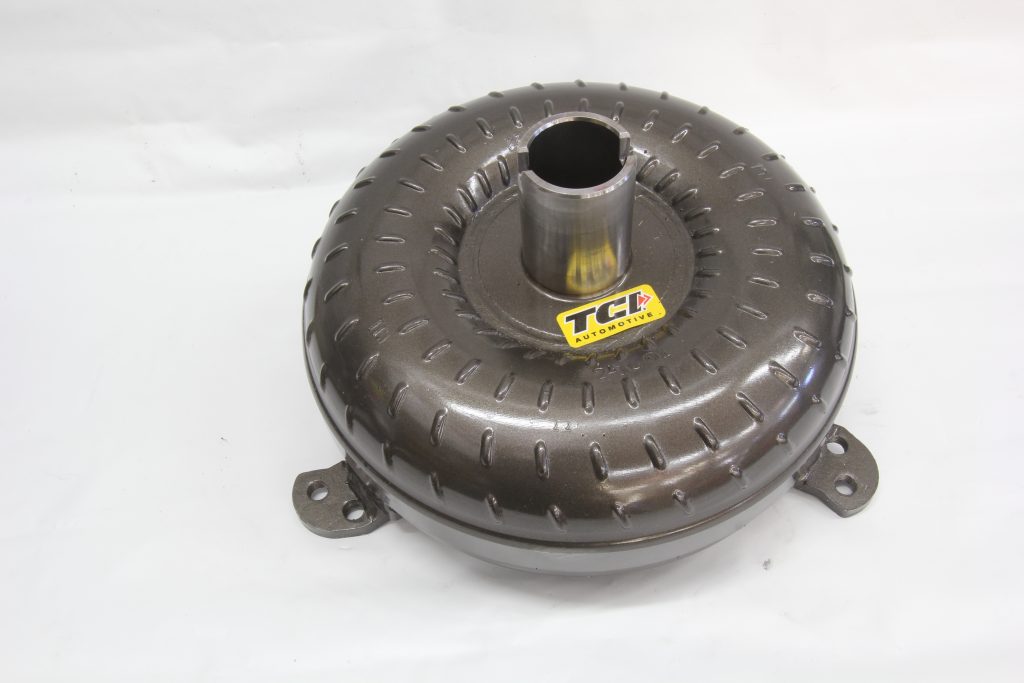Got questions?
We’ve got the answers—the Summit Racing tech department tackles your automotive-related conundrums. This week, we’re talking torque converters:
Q: I am in the market for a street/strip torque converter. The car is a 1977 Chevy Monza with a 400 cubic-inch, 10:1 compression small block with stock bottom-end components, 462 fuelie heads, a Lunati 290-degree advertised duration/.460-inch lift hydraulic cam, 750 Holley vacuum secondary carb on a port-matched Edelbrock Performer RPM intake, and an HEI distributor with an ACCEL Super Coil. The engine makes around 375 horsepower.
The engine is attached to a Turbo 350 transmission with a B&M Transpak and heavy-duty clutches and steels. The rear axle is an 8.5-inch 10-bolt with 3.90 gears and a posi unit. The car has subframe connectors, ladder bars, and 26-inch tall tires.
I need a converter that can handle a mild nitrous oxide system.
F.P.

A: TCI offers a converter with an anti-ballooning plate to deal with the stress of nitrous oxide use, part number TCI-240901. It is rated at 2,500 rpm stall, but in a lightweight car like your Monza, the converter will probably stall between 2,000 and 2,200 rpm.

I have a chevy elcamino with a 421stroker that’s 13to1 compression. Will sray 200shot of nitrous.What is your recommend a torque converter that would handle nitrous? The car weights around 3400lbs.I’m running a power glide transmission. With nitrous it puts out 740lbs of torque and 889hp.